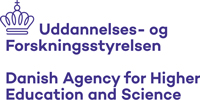
In a world where automation is thought to increase productivity and efficiency with less effort and at lower costs, what happens to human flourishing when this logic is deployed to support decisions in the welfare sector?
AUTO-WELF investigates the extensive implementation of automated decision-making in the welfare sector across Europe. It is the first to provide a comparative analysis of automated welfare provision across European welfare regimes to examine the implications of algorithms and artificial intelligence for the future of European citizens and societies. Data-based infrastructures for public administration are shaping not only welfare provision, but also state-citizen relations and prompt questions of human agency in relation to complex socio-technical systems, ethics and accountability, as well as biases and inequalities.
The project foregrounds the perspective of people implicated in the automation process, including software engineers, case workers and citizens. Implementing a multimethod, interdisciplinary and cross-country comparative approach, the project will develop ground-breaking knowledge on the consequences of automating welfare in two domains:
- core welfare service;
- communal welfare infrastructures.
These domains will be explored across eight European countries (Austria, Denmark, Estonia, Germany, Italy, Poland, Portugal, Sweden) representing four types of welfare state and its different stages of automated decision-making. The project provides an in-depth and cutting-edge understanding of the process of automating welfare from a European perspective producing highly relevant insights into how automated decision-making can support but also harm human flourishing.
CONSORTIUM:
- Project Leader: Anne Kaun, Södertörn University, Department for Culture and Education, Sweden, e-mail
- Stine Lomborg, University of Copenhagen, Department of Communication, Denmark, e-mail
- Christian Pentzold, Leipzig University, Institute for Communication and Media Studies, Germany, e-mail
- Karolina Sztandar-Sztanderska, Institute of Philosophy and Sociology Polish Academy of Science, Poland, e-mail
- Doris Allhutter, Austrian Academy of Sciences, Institute of Technology Assessment, Austria, e-mail
COOPERATION PARTNERS:
- Matthias Spielkamp, Algorithm Watch
- Birgitte Kofod Olsen, DataEthics
- Tanja Mally, Epicenter.works – Plattform Grundrechtspolitik
- Rikke Frank Jörgensen , The Danish Institute for Human Rights
- Ana Jorge, Lusófona University
- Alice Mattoni, University of Bologna
- Brigitte Alfter, Arena for Journalism in Europe / DataHarvest
- Daniel Neugebauer, Haus der Kulturen der Welt
- Veronika Liebl, Ars Electronica Linz GmbH & Co KG
 Start date
Start date
1 October 2022
 Project duration
Project duration
36 months
 Project budget
Project budget
€ 1 494 809
Funding organisations



![]()
![]()